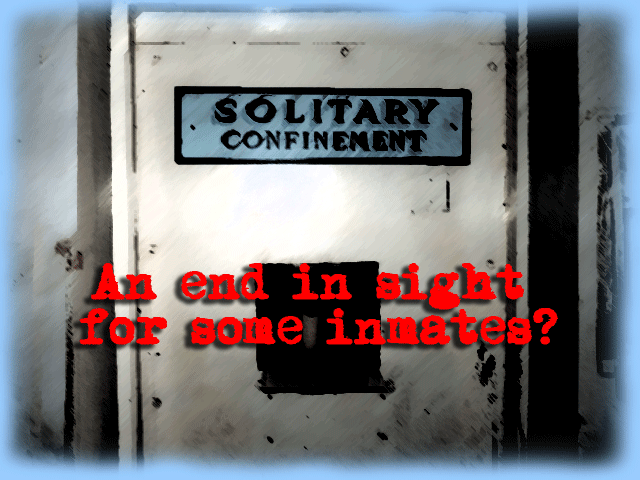NEW POLICIES FOR CALIFORNIA PRISONS’ ISOLATION UNITS GET BOTH YEA’ED AND NAY’ED BY ADVOCATES
In response to last year’s hunger strikes, the CA Dept. of Corrections (CDCR) plans to institute new policies dictating how inmates are assigned to the systems controversial isolation units, or Secure Housing Units (SHUs) and, conversely, how inmates can get out of them. Advocacy groups embrace some of the new ways inmates will be able to work their way out of isolation, but they are concerned that some of the other policy changes will shove more inmates into the SHUs unnecessarily.
California Watch’s Michael Montgomery has the story. Here’s a clip:
Under the plan, inmates are eligible to work their way out of the special units in three to four years if they complete special programs alongside prisoners from rival groups and do not engage in gang “behavior or activities.” McDonald said inmates will not be required to divulge inside information about the gangs in order to earn transfers out of the units, a controversial practice known as “debriefing.”
Other changes include new criteria to determine who can be sent to the units.
Under current rules, an inmate is automatically placed in a Security Housing Unit if he is identified as a member or associate of one of seven prison gangs. According to a policy draft released by the corrections department in March, prison gang associates would be sent to isolation units only if they were “engaged in serious criminal gang behavior or a pattern of violent behavior.” The department also would target dangerous members of any group considered a threat to prison security, including street gangs and extremist groups.
The changes will give prison staff more flexibility in dealing with a range of “security threat groups,” according to an Aug. 30 corrections department notice sent to the California Correctional Peace Officers Association, the powerful union representing prison guards.
The new policies will put California more closely in line with “recognized national standards and strategies,” staving off the “inevitable litigation and court mandated changes the State would face by remaining exclusively reliant on the current … system,” according to the document.
But revisions in a June 29 corrections document obtained by California Watch suggest that officials are moving away from the narrower focus on specific criminal or violent acts. Rather, they appear to be reviving controversial guidelines that have allowed authorities to send inmates to the special units for violations such as gang-related tattoos and drawings.
LOS ANGELES SCHOOL OFFICIALS AND OTHERS MEET WITH EXPERTS TO FIND ALTERNATIVES TO ZERO TOLERANCE POLICIES
LAUSD, law enforcement and LA County officials are meeting today with an Atlanta group that has initiated serious shifts in the way schools deal with minor offenses, greatly reducing suspensions and on-campus arrests. (In the same vein, Matt Fleischer’s reported Wednesday on a state-wide hearing exploring alternatives to CA’s broken school discipline system.)
KPCC’s Tami Abdollah has the story. Here’s a clip:
Rather than focusing on punishment, these methods focus on looking at bad behavior as a symptom in kids, who are still mentally and emotionally developing, and trying to deal with the root causes of their actions.
The technical assistance team is headed by Judge Steven Teske of Clayton County, Georgia, who has worked on changing the response to low-level juvenile offenses since 2003. He has helped officials in counties across the country drop their arrest rates. In his own county, Teske’s efforts dropped the fighting offenses in schools by 87 percent between 2002 and 2010; graduation rates rose by 20 percent.
CA POLLS ON ABOLITION OF DEATH PENALTY AND THREE STRIKES REFORM
According to the most recent CA polls, Prop 34, the initiative to repeal the death penalty, is losing (currently by 8%), but there is staggering support for reforming the three-strikes law under Prop 36.
The polls have caught Doug Berman’s attention over at Sentencing Law and Policy.

